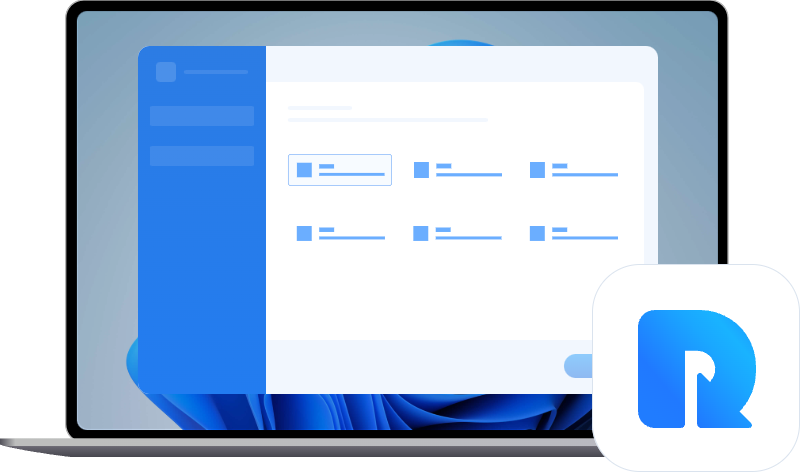Navigating Windows 11 Storage: Unraveling the Mystery of Disk Space
Embark on an exploration of Windows 11 storage, with a focus on understanding the disk space requirements. This comprehensive guide addresses the critical question—how much space does Windows 11 take? Uncover a wealth of information, including step-by-step methods for managing and optimizing storage on your Windows 11 device.
The advent of Windows 11 has sparked curiosity regarding its storage dynamics. Central to this inquiry is the fundamental question—how much space does Windows 11 take? This article is your guide to unraveling the complexities of Windows 11 storage requirements. We navigate through the intricacies, providing detailed methods to optimize and manage storage, coupled with insights into MyRecover for seamless data recovery on Windows 11.
How Much Space Does Windows 11 Take?
Understanding the space allocation of Windows 11 on your device is pivotal for maintaining optimal performance. The disk space requirements for a standard Windows 11 installation typically hover around 64 GB. However, considering the potential expansion due to updates, applications, and additional files, it is advisable to allocate at least 128 GB for a comfortable Windows 11 environment. Monitoring your storage is crucial to prevent performance bottlenecks and ensure a responsive operating system.
MyRecover: Your Data Recovery Ally
Before delving into storage management, let's introduce MyRecover—a robust tool designed to be your ally in data recovery on Windows 11. MyRecover goes beyond merely recovering lost or deleted files; it boasts features for efficient data restoration. Let's explore the key features and delve into the step-by-step recovery process with MyRecover.
MyRecover Features
User-Friendly Interface: MyRecover provides an intuitive interface, ensuring that data recovery is accessible to users of all levels.
Quick Scan and Recovery: The tool initiates a rapid scan of your storage, identifying lost or deleted files and enabling swift recovery.
Selective File Restoration: Beyond overall recovery, MyRecover empowers you to choose specific files for restoration, minimizing data loss.
Compatibility: MyRecover is seamlessly compatible with Windows 11, guaranteeing efficient recovery on this latest operating system.
MyRecover Recovery Steps
Leverage MyRecover for efficient data recovery on Windows 11 with these step-by-step instructions:
Step 1: Download and Install
- Visit the official MyRecover website.
- Download the latest version of the tool.
- Follow the installation prompts to set up MyRecover on your Windows 11 device.
Step 2: Launch the Tool
- Once installed, launch MyRecover from your desktop or Start menu.
- The user-friendly interface will guide you through the recovery process.
Step 3: Select Scan Type
- Choose between a quick scan and a deep scan based on your recovery needs.
- Opt for a quick scan for recent file deletions and a deep scan for more extensive data loss scenarios.
Step 4: Scan Your Storage
- Initiate the scan, allowing MyRecover to comprehensively analyze your storage.
- The tool identifies recoverable files and provides a detailed scan report.
Step 5: Preview and Recover
- Review the scan results to preview recoverable files.
- Select the items you wish to restore and click on the "Recover" button to complete the process.
Managing Windows 11 Storage: Methods and Tips
Now that you're equipped with insights into Windows 11 storage and MyRecover, let's explore detailed methods to manage and optimize your storage effectively.
Method 1: Disk Cleanup
Access Disk Cleanup:
Type "Disk Cleanup" in the Windows search bar.
Select the utility from the search results.
Select Drive:
Choose the drive you want to clean.
Typically, this would be the drive where Windows 11 is installed.
Choose File Types:
Disk Cleanup presents a list of file types that can be cleaned.
Select the types of files you want to delete.
Initiate Cleanup:
Click on "OK" and then "Delete Files" to start the cleanup process.
Method 2: Uninstall Unnecessary Applications
Go to Settings:
Open Windows Settings.
Sort by Size:
Navigate to "Apps."
Uninstall Unused Apps:
Sort installed applications by size.
Select and uninstall applications that are no longer needed.
Method 3: Move Files to External Storage
Identify Large Files:
Use the File Explorer to identify large files taking up space.
Transfer to External Storage:
Move non-essential large files to an external storage device.
Method 4: Optimize Windows Storage Settings
Go to Settings:
Open Windows Settings.
Configure Storage Settings:
Navigate to "System" > "Storage."
Explore and configure storage settings to optimize space usage.
Brief Summary
Understanding how much space Windows 11 takes is integral to maintaining a responsive and efficient system. With insights into storage management methods and the power of MyRecover for data recovery, you're well-equipped to navigate the Windows 11 storage landscape seamlessly.
Conclusion
Embarking on your Windows 11 journey requires proactive storage management. From optimizing storage settings to leveraging MyRecover for data recovery, these strategies empower you to make the most of your Windows 11 device. Organize your space and secure your data for a seamless computing experience.
Frequently Asked Questions (FAQs)
Q: Can MyRecover recover files from external drives on Windows 11?
A: Absolutely. MyRecover is designed to recover files not only from internal drives but also from external storage devices connected to your Windows 11 device.
Q: How often should I run Disk Cleanup on Windows 11?
A: Running Disk Cleanup monthly is a good practice to remove unnecessary files and keep your Windows 11 storage optimized.
Q: Does MyRecover support the recovery of multimedia files on Windows 11?
A: Yes, MyRecover is capable of recovering a wide range of file types, including multimedia files such as photos, videos, and audio.
Q: Can I use MyRecover to recover files deleted a long time ago on Windows 11?
A: Yes, MyRecover's deep scan feature allows you to recover files deleted a while ago, covering extensive data loss scenarios.
Q: Are there any precautions I should take before running Disk Cleanup?
A: Before running Disk Cleanup, ensure you have a backup of important files. While Disk Cleanup targets unnecessary files, it's always wise to be cautious.


